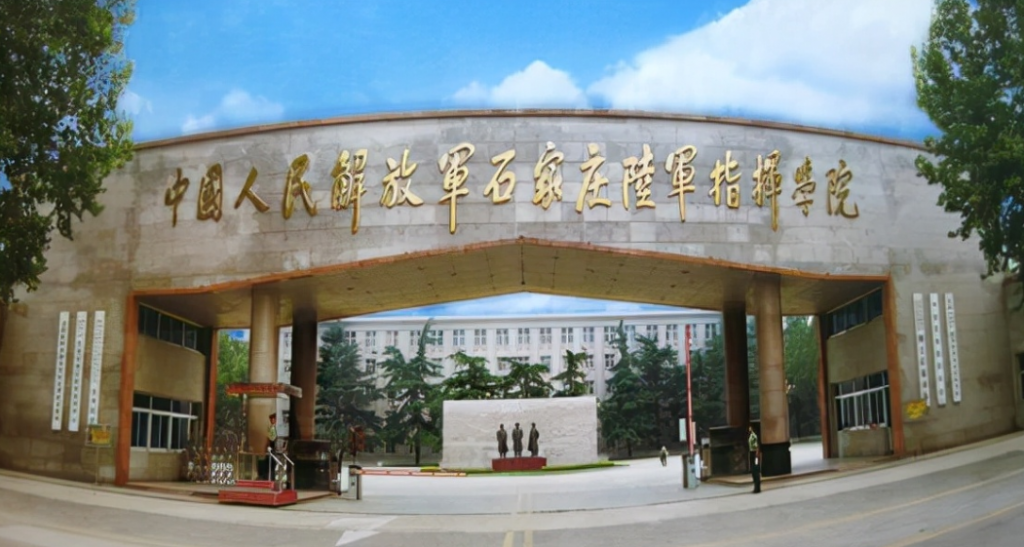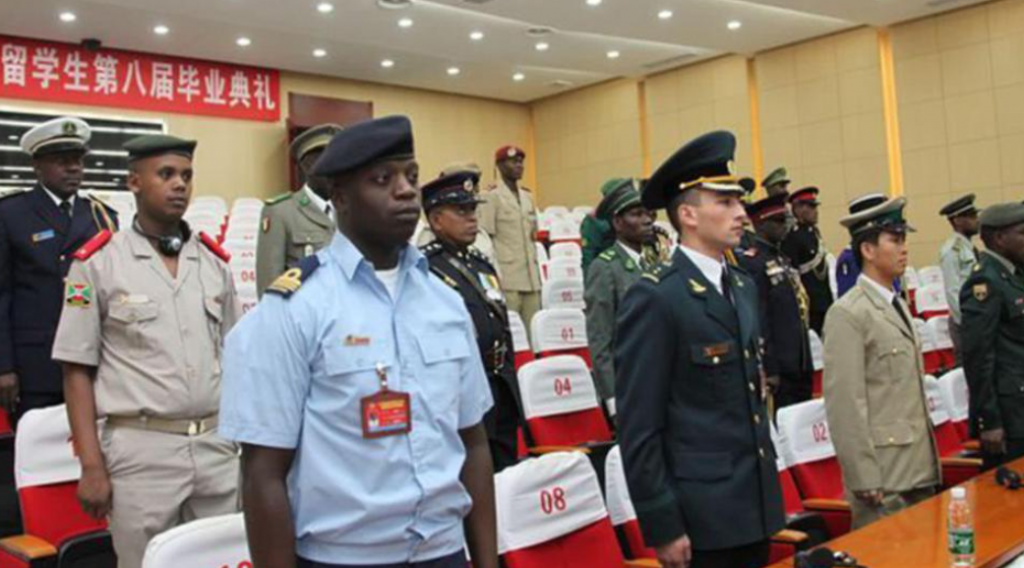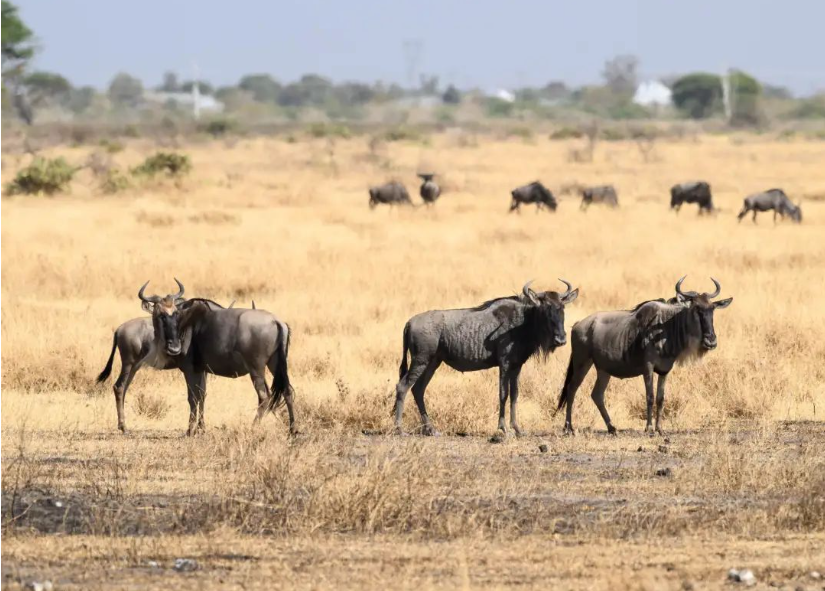China, as a developing country and a member of the “Third World,” has long been committed to sharing its experiences with other nations. One notable example is the education of international military students, particularly from Africa, in Chinese military academies. Many African countries have sent students to China for military training, with some attending to strengthen their national defense capabilities.
Chinese Military Schools Training African Generals
According to publicly available information, three major military academies in China have hosted international students: the National Defense University, the Shijiazhuang Army Command College, and the Nanjing Army Command College. Among these, the Shijiazhuang Army Command College, which has since merged into the National Defense University and is now known as the Joint Operations College, was particularly renowned. African students referred to it as China’s “West Point.”

However, many African students may not have been aware that this prestigious military academy was originally established during one of the most perilous periods in Chinese history. The predecessor of the Shijiazhuang Army Command College was the Second Branch of the Anti-Japanese Military and Political University, founded in 1938 during the Second Sino-Japanese War. As China transitioned into a prolonged war of resistance, it became increasingly difficult for revolutionary youth from occupied and nationalist-controlled areas to reach the main campus of the university. To address this, the Communist Party of China decided to establish branch campuses behind enemy lines to train military and political officers for the Eighth Route Army and the New Fourth Army.
The Second Branch of the Anti-Japanese Military and Political University was founded in December 1938 and played a crucial role in training over 20,000 officers for China’s resistance forces over the next five years. Over time, the institution evolved into the North China Military and Political University, and eventually into the Shijiazhuang Army Command College in 1999. Throughout its history, it has trained over 150,000 military officers for the People’s Liberation Army (PLA) and awarded master’s and doctoral degrees to over 2,500 graduates. Notably, more than 300 alumni have risen to the rank of general. Chinese military leaders such as Marshals Ye Jianying, Liu Bocheng, and Nie Rongzhen have also served as instructors at this prestigious academy.
Beyond training PLA officers, the college has also educated many high-ranking military officers from around the world, including Africa.
The Rigorous Training of African Cadets in China
Unlike short-term exchange programs, African students studying at Chinese military academies undergo full-length professional training. These cadets start with fundamental theoretical studies, progressing through individual combat tactics, platoon-level offensive strategies, and coordinated operations with armored units. They wear PLA uniforms, participate in daily training alongside their Chinese peers, and immerse themselves in Chinese military traditions, theories, and culture.

These students are officially enrolled with academic records, structured organizational affiliations, and designated supply systems, ensuring they receive the same education and resources as their Chinese counterparts. To address linguistic challenges, the academies offer instruction in multiple languages, including French, Spanish, Russian, and English. This dedication to accommodating diverse backgrounds has earned the respect of many foreign cadets. A major from an African country once remarked, “The curriculum at Chinese military academies is very considerate, taking into account the needs of every student.”
At the Nanjing Army Command College, a wall is inscribed with the Chinese character “和” (harmony) in various scripts, symbolizing China’s military philosophy. The goal of military exchanges is not just to strengthen one’s own forces but also to project strength as a means of achieving strategic peace. With this principle in mind, the academies integrate theoretical studies with hands-on experience, allowing African cadets to familiarize themselves with advanced military technology, including warships and aircraft.

The Impact of Chinese Military Training on African Conflicts
In the 1960s and 1970s, African independence movements were in full swing. One notable figure who benefited from Chinese military training was Sam Nujoma, leader of the South West Africa People’s Organization (SWAPO) and a key figure in Namibia’s struggle for independence. In 1964, Nujoma traveled to China to study at the Nanjing Army Command College. Although his training lasted only a few months, it profoundly influenced his approach to guerrilla warfare.
After returning to Africa, Nujoma applied Mao Zedong’s principles of guerrilla warfare, such as “when the enemy advances, we retreat; when the enemy halts, we harass; when the enemy tires, we attack; when the enemy retreats, we pursue.” Facing a superior South African military force, Nujoma’s forces initially suffered heavy losses. However, by adopting landmine warfare—a tactic inspired by his Chinese training—the South West Africa Liberation Army (SWALA) turned the tide, forcing South Africa to adapt its counterinsurgency strategies.
Another example of the impact of Chinese-trained African officers occurred during the Uganda-Tanzania War of 1978-1979. When Ugandan dictator Idi Amin invaded Tanzania, the Tanzanian People’s Defense Force (TPDF) initially struggled against Uganda’s well-equipped military. However, the arrival of the TPDF’s “Southern Brigade,” which included officers trained at the Shijiazhuang Army Command College, changed the course of the war. Using PLA-style deep penetration tactics, Tanzanian forces outflanked Ugandan troops, captured key supply depots, and swiftly advanced toward Kampala, leading to Amin’s downfall.
Conclusion
For decades, China has played a crucial role in training military officers from developing countries, particularly in Africa. The rigorous training provided at Chinese military academies has not only enhanced the professional skills of individual officers but has also influenced military strategies and conflicts across the continent. By combining theoretical education with practical training, China has contributed to the development of military leaders who have gone on to shape the defense and security policies of their respective nations. As China continues its global military exchanges, its influence on international military education will only continue to grow.

No comments yet.